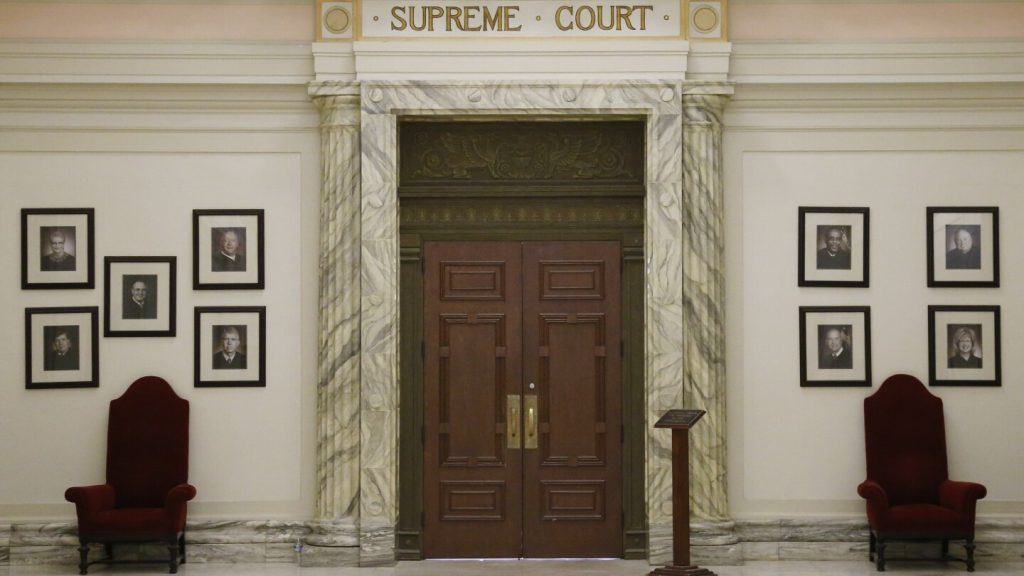The Oklahoma Supreme Court made a decision to stop the establishment of the first publicly funded religious charter school in the U.S. The court ruled that the approval of the application by the Catholic Archdiocese of Oklahoma for the St. Isidore of Seville Virtual Charter School violated the Establishment Clause, which prohibits government involvement in establishing religion. This decision is significant as it reflects a broader debate about the role of religious groups in public education. Supporters of the school believe recent U.S. Supreme Court decisions have shown a more open stance towards public funds going to religious entities.
Conservative-led states have been targeting public schools in various ways, such as requiring the posting of the Ten Commandments in classrooms and pressuring schools to teach the Bible while banning certain books and lessons. The idea of blending religion and public education has sparked heated debates across the country. In Oklahoma, the virtual charter school sponsored by the Catholic Archdiocese was set to start classes in the fall but has now been halted due to the Supreme Court ruling. The court’s decision was supported by a majority of justices, with some dissenting opinions highlighting concerns about religious freedom and constitutional rights.
The Archdiocese of Oklahoma City and Diocese of Tulsa have expressed disappointment with the court’s ruling and are considering their legal options moving forward. The debate over the separation of church and state, as well as the freedom of religious expression, continues to be a contentious issue in the education system. Oklahoma Attorney General Gentner Drummond, who advised against approving the contract for the religious school, praised the court’s decision, emphasizing the importance of keeping the state separate from religious sponsorship in education. With conflicting interpretations of the U.S. and Oklahoma Constitutions, the legal battle over the establishment of religiously-affiliated charter schools is likely to continue.
Parents, faith leaders, and a public education nonprofit in Oklahoma have filed a lawsuit to halt the establishment of the St. Isidore of Seville Virtual Charter School. The case has garnered attention from both supporters and opponents of public funding for religious schools. Governor Kevin Stitt, who initially supported the board’s decision to approve the school, expressed disappointment with the court’s ruling, suggesting that it sends a negative message about the role of religious groups in the education system. The debate over charter schools and the involvement of religious institutions in public education is a complex issue with implications for constitutional rights, educational policy, and the separation of church and state.
As the legal battle over the St. Isidore of Seville Virtual Charter School unfolds, the future of publicly funded religious schools in the U.S. remains uncertain. The decision by the Oklahoma Supreme Court to halt the establishment of the school reflects a broader debate about the boundaries between religion and public education. Supporters of the school argue that recent court decisions have shown a more open stance towards public funds going to religious entities, while opponents emphasize the importance of maintaining the separation of church and state. The outcome of this case could have long-lasting implications for the way religious groups are involved in public education and how constitutional rights are interpreted in the context of the education system.


